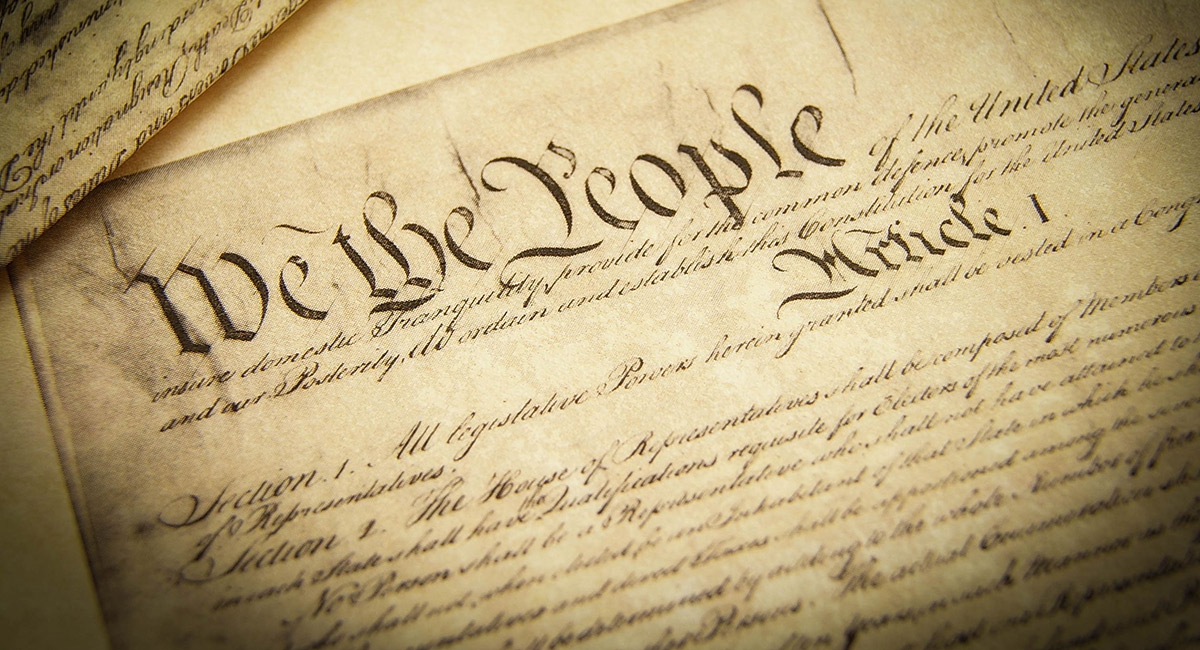No, no, no! Say it isn’t so: the National Archives places the Constitution, Bill of Rights, and Declaration of Independence under the heading “Harmful Language Alert.” It trigger-warns that such documents may “reflect racist, sexist, ableist, misogynistic/misogynoir, and xenophobic opinions and attitudes; be discriminatory towards or exclude diverse views on sexuality, gender, religion and more.”
The National Archives’ racism task force claimed in April that the Archives Rotunda, which houses the founding documents, is an example of “structural racism.”
It was a young Hillsdale College student, Haley Strack, who discovered and revealed to the public on September 8 the National Archives’ smear of the Constitution and other revered documents. She did so in “National Archives Slaps ’Harmful Content’ Warning on Constitution, All Other Founding Documents.”
Times have changed. In the late 1980s, I was staff director of the presidential and bipartisan Commission on the Bicentennial of the U.S. Constitution, chaired by Chief Justice Warren Burger, whom I served as what he called his “chief of staff.” We didn’t know that we were championing a document that the National Archives would later declare as having harmful content and as falling within the category of racism. Serving on the commission were Democrats Rep. Lindy Boggs, Sen. Edward Kennedy, and Sen. Dennis DeConcini, and Republicans Rep. Philip Crane, Sen. Mark Hatfield, and Sen. Strom Thurmond. I can assure readers that these political leaders revered the Constitution, not even beginning to think it needed a trigger warning. The chief justice, as chairman, would not allow any member to politicize the commission. No one even tried—not even Strom Thurmond or Ted Kennedy.
Chief Justice Burger wrote in the foreword to the commission’s edition of the Constitution: “This Constitution was not perfect; it is not perfect today even with amendments, but it has continued longer than any other written form of government.” He agreed with British prime minister Benjamin Disraeli that “the Constitution was the most remarkable political document ever struck by the hand of man.”
I am reminded here of an observation by Samuel Johnson: “A man,” in this egregious case the governing directors at the National Archives, “might write such stuff forever if he would abandon his mind to it.” They will rewrite history as they want it to be, in the political way they seek.
In fact, the National Archives has stated that it will work “in conjunction with diverse communities and seek to balance the preservation of this history with sensitivity to how these materials are presented to and perceived by users.”
If you don’t like history, just change it the way you would your shirt.








